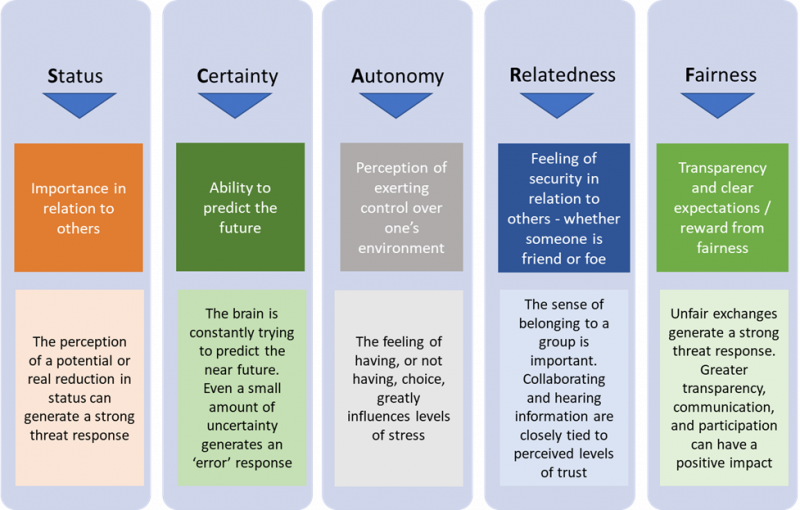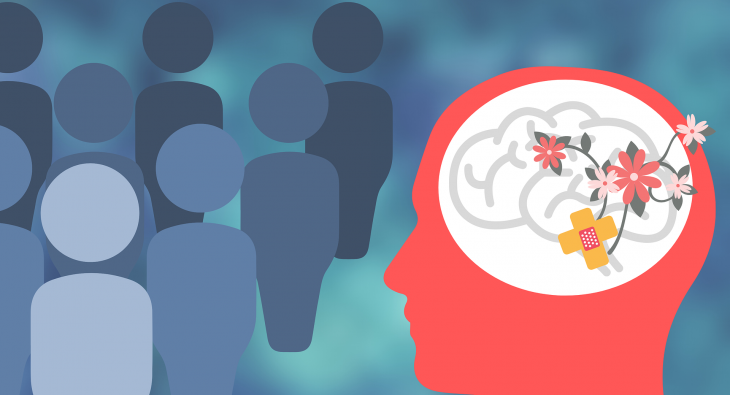Are you neuro nimble? Focus on Resilience
Lessons for leading in a pandemic
Neuro Nimble blog series 2 of 3: Focus on resilience
Author Greg Falvey is an Associate Director at 4i Solutions Ltd. He provides leadership programmes and executive coaching. He has a long career in the social housing sector and is currently Vice Chair for Southdown Housing Association providing housing, support and care services.
The first article of this short series Focused on motivation
An article I read recently in the New York Times, by Adam Grant, talked about ‘languishing’. He described it as ‘the neglected middle child of mental health’. He was talking about the context of our experiences in the pandemic. People might not be clinically depressed, but neither are they flourishing. They are getting on with their work, but they are feeling a malaise, lower energy levels and a sense of dislocation. Basically, feeling yuk. The strange artefacts of the pandemic, the grief, the impact on our normal lives, is leading to a growing sense of limbo and uncertainty. The feeling saps motivation and drive and dents our resilience.
Psychologists describe resilience as our ability to cope both mentally and emotionally when faced with adversity. The psychological strength to cope with stress. It’s not about the nature of the adversity itself but how well we are equipped to be knocked down and then get back up again, as we were before the misfortune. It’s how we manage our response that is important. Resilient people still experience the challenge and stress but have learnt to face their adversities head-on and apply their inner toolkit to deal with it. It is also about our ability to learn from the adversity, recognise the pitfalls and adjust our cognitive resources, our coping strategy, accordingly. Using the analogy of an engine needing fuel, the psychiatrist Christine Adams in ‘Psychology Today’ said: ‘Psychological fuel comes from both new experiences, such as novel or re-visited experiences, and rest, doing nothing.’
Psychologists refer to key building blocks for resilience; our ability to regulate our emotions, a positive attitude, and optimism. Winston Churchill said ‘A pessimist sees the difficulty in every opportunity; an optimist sees the opportunity in every difficulty.’ As our organisations emerge from the pandemic, we need to reframe the challenges as opportunities. Instead of what went wrong and how can we fix it, use positive language. What new experiences did we encounter and how can we learn from them.
How do we promote that optimism? We do it by making sure the psychological needs of our staff are met.
The SCARF Model
To meet the challenge of building staff resilience we would do well to arm ourselves with the SCARF Model.
Research in neuroscience, developed by the Neuro Leadership Institute, led to David Rock’s work on developing the SCARF Model. The model is pertinent to the challenges faced by leaders as we move out of the pandemic and make changes to our organisations. Good leaders know they can improve resilience and performance from their teams if they address not just the practical but also the psychological needs of teams and individuals.
The SCARF model identifies five ‘domains’ in our social experience that address these psychological needs:
- Status – our sense of how others regard our importance relative to others
- Certainty – our ability to predict the future
- Autonomy – perception of exerting control over our environment
- Relatedness – feeling of security and how safe we feel with others
- Fairness – Transparency and how fair we perceive we are treated in relation to others
Source: adapted from ‘SCARF: A Brain-Based Model for Collaborating With and Influencing Others.’ David Rock 2008.
Our experience in these five domains, either positive or negative, activate neurological responses in the same way as our threat and reward, or flight or fight, responses. In the pandemic our psychology is threatened under each of these headings. No wonder people are struggling. So how can we foster the right environment for allowing our staff to receive what they need within each domain?

Status
Our staff are acutely aware of their status and if satisfied they get the commensurate buzz. They are motivated and their resilience intact. But if overlooked for that promotion there will be a negative neurological response leading to disillusionment and anxiety. Or following a quite sensible restructure your direct report is apparently demotivated because a new manager is introduced above them. Unrecognised achievements and stolen innovations have the same effect. Give credit when it is due, reward effort with praise, and celebrate achievements with the team.
Your staff put on furlough may perceive this as a threat to the status domain. They may see those still working on site as the chosen few. It is also likely that those on site at the office will feel a threat to their status as those on furlough or working from home have been advantaged. When we re-model new and possibly hybrid ways of working we need to be cognisant of the unforeseen consequences of threats to status.
Certainty
Our organisations face many uncertainties in a complex world. In this domain, without clear direction and expectations your staff will respond suffering anxiety and confusion. The senior management team may know how the organisation is managing and financing its response to the pandemic, but it is no good if this isn’t shared with the staff. If the organisation doesn’t have the answers, then share the journey toward those answers. When plans are made in your organisation for a post pandemic world, don’t let your staff read about it in the sector’s press.
Autonomy
We build our resilience with a sense of autonomy and control over our environment. If we can influence our work content and direction it derives fulfilment and purpose. Your staff need empowerment, the opportunity to be inventive, to make mistakes and to learn. Reward experimentation and loosen those controls. When devising new ways of working post pandemic, ask your staff what they need and how best they can retain control of their working practices. Leaders have to not just say they trust, they have to demonstrate their trust.
Relatedness
Relatedness is about belonging, not having a sense of being on the periphery. Teams can derive a real sense of togetherness to strengthen their bonds, but sometimes at the expense of excluding others. Leaders need to ensure that they use the language of inclusiveness. Particularly now with the pandemic we need to re-double our communications to staff. Despite the obvious difficulties we need to maximise on engagement to build belonging and bonding. Without it our staff loose resilience and loyalty. Additional staff engagement and well-being initiatives are needed to ensure those with a particular vulnerability or remoteness are connected with the wider team.
Fairness
We are all social beings and have learnt through time to value fairness and equity. Dr Melanie Greenberg in an article in Psychology Today referred to research that showed the brain is hard wired to evaluate fairness. She said; ‘We seem to have a happiness response to fair treatment and a disgust or protest response to unfairness.’
Clearly, we need to be honest and transparent in the decisions that affect our staff. We need robust and practical equality, diversity and inclusion strategies. And new ways of enacting these strategies in a hybrid home / office environment.

Eight take aways
- Set the right tone and ensure the language used in your organisation is framed around opportunity, optimism and support
- Capture the lessons learnt from the pandemic and be bold and ambitious for change
- Consider workshops for building resilience skills
- Make wellbeing projects not just the latest initiative but part of the fabric of the organisation
- Offer peer support, mentoring and coaching opportunities to reenergise management and leadership.
- Increase capacity to develop transformation strategies that address psychological needs
- Build in time for consultation and reduce isolation
- Use the SCARF model!
The People Development team at 4i Solutions collaborate with clients to provide leadership development, executive coaching and outdoor experiential learning. Contact us to see how we have help your organisation.







